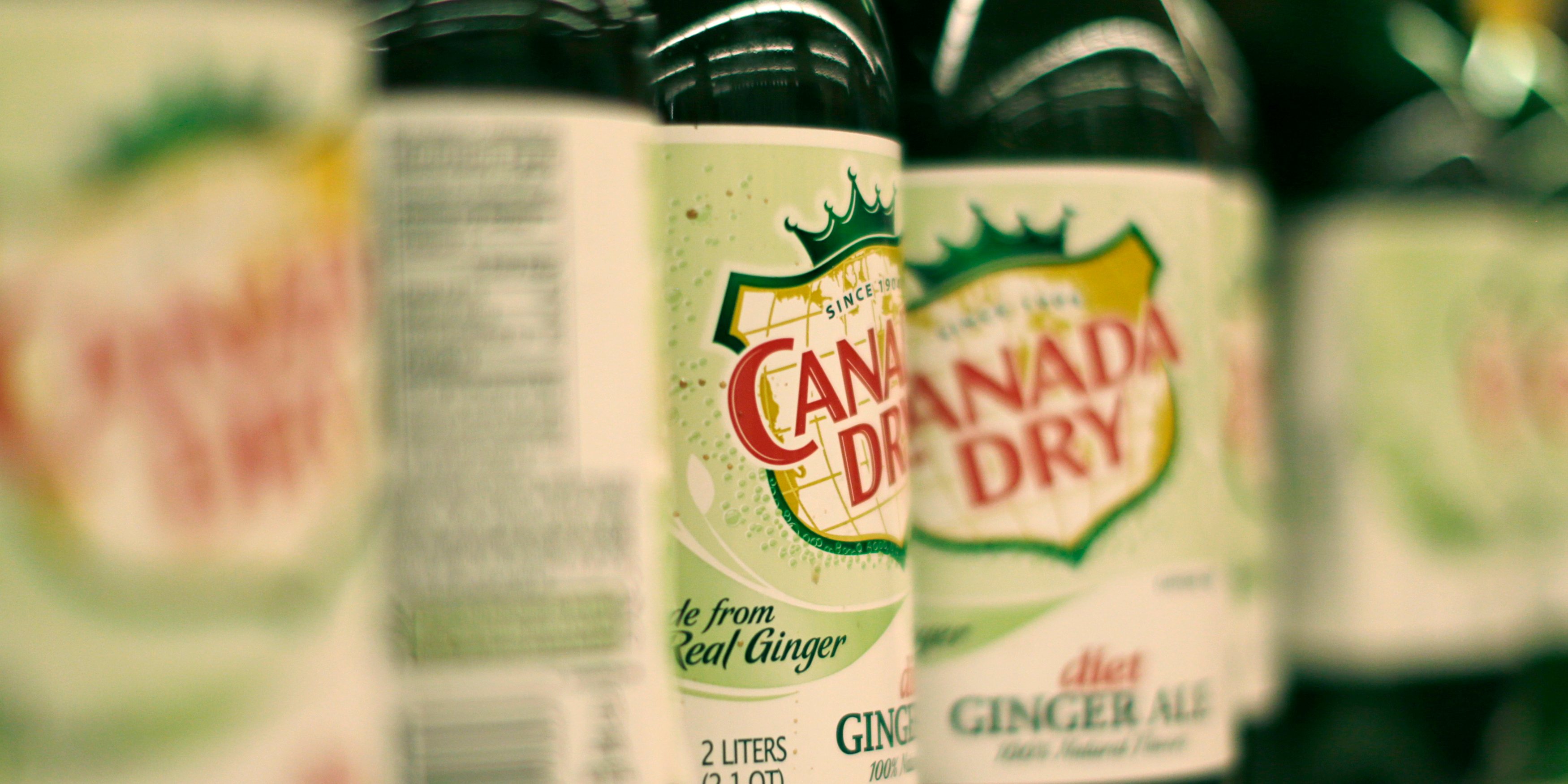- Julie Fletcher of Bolivar, New York filed a lawsuit on July 10 against Dr. Pepper Snapple Group, claiming she was misled about the possible health benefits of Canada Dry ginger ale.
- For years, Fletcher has drank Canada Dry to soothe her and her kids’ stomach aches, because the can says it’s made with ginger, a natural cure for nausea and other ailments.
- The lawsuit cites lab testing that shows that ginger is not a significant ingredient in Canada Dry, making up less than two parts per million of the soft drink.
- Dr. Pepper Snapple Group did not respond to Business Insider’s request for comment on the suit.
If you thought a glass of Canada Dry soothed your stomach on your last flight, it could be all in your head.
The soft drink’s parent company, Dr. Pepper Snapple Group (DPSG), was hit with a new lawsuit earlier this month, by a woman who claims she was misled about the potential health benefits of the ginger-flavored drink.
While Canada Dry’s bottles and cans say it’s “Made from Real Ginger,” the lawsuit cites lab testing that shows the drink doesn’t contain “‘real ginger’ as reasonable consumers understand that term.”
The lawsuit was filed in federal court on July 10 by Julie Fletcher, a mother in Bolivar, New York.
Fletcher says she's been drinking Canada Dry - and giving it to her kids - to soothe stomach aches for years, because it advertises that it's made with real ginger.
"Ms. Fletcher believed this meant that Canada Dry was made using ginger root and was, as a result, a healthier alternative to regular sodas," her lawyer writes in the lawsuit.
So she was shocked when another recent lawsuit, filed in Missouri, cited lab testing that showed only "microscopic" amounts of ginger in the soft drink.
"Instead, Canada Dry Ginger Ale is made from carbonated water, high fructose corn syrup, citric acid, preservatives and 'natural flavors,' i.e., a flavor compound comprised predominantly of flavor extracts not derived from ginger, and a minuscule amount of a ginger flavor extract,' the lawsuit alleges.
In addition to the "Made from Real Ginger" packaging labels, the lawsuit says Fletcher was also misled by the company's commercials.
The lawsuit says that DPSG started focusing on the ginger aspect of Canada Dry since the mid-2000s, when the soft drink industry was taking a hit for being unhealthy.
In 2011, Canada Dry put out multiple commercials focusing on a ginger farm where bottles and cans of Canada Dry were harvested from the ground like real ginger roots.

And it's undeniable that the rebranding worked.
According to the lawsuit, "within six months of adding the ['Made from Real Ginger'] claim, Canada Dry sales skyrocketed by almost 9%, and continued to increase every year thereafter - even with sales of regular sodas continuing to decline."
Fletcher is seeking unspecified damages in the suit, claiming she was "economically damaged" by continuing to buy Canada Dry under false pretenses. She also hopes to turn the case into a class-action lawsuit.
Similar lawsuits have been filed in other states
This isn't the first lawsuit regarding the amount of ginger in Canada Dry. Similar lawsuits have also been filed in Massachusetts and California.
Another case was filed in Missouri but dismissed in April when the plaintiff dropped the case.
In that case, DPSG argued that even though a lab didn't find significant amounts of ginger in its ginger ale, that didn't mean it wasn't there.
"Plaintiffs' entire theory of falsity rests on a single-sentence conclusion that some never-identified 'independent laboratory' tested some unspecified beverage, in a never-disclosed way at a never-alleged time," the company said in court documents.
Business Insider reached out to DPSG for comment on Tuesday about Fletcher's lawsuit, but did not receive a response.

